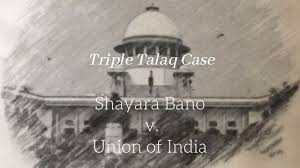The Shayara Bano vs. Union of India case is a landmark judgment in Indian judicial history. The court found that the Fundamental Rights of a Muslim woman are higher than the Personal Laws. The majority of judges unanimously agreed that the ITT is unconstitutional. The judgment is a clear victory for women’s rights and an essential step towards reform.
Shayara Bano Case Analysis
In its 1980 judgment, the Supreme Court affirmed personal law and ruled that a Muslim man could divorce his wife by saying “talaq” twice. This decision overturned the private law and established the Islamic religion’s status as the supreme law. In a 1997 ruling, the Supreme Court implicitly overturned the personal laws, and this case is a significant step in clarifying that constitutional status. To get the complete data about “Donoghue v Stevenson” from an overall perspective, visit the site “Law Planet.”
The case was based on the rights of Muslim women. Shayara Bano was married to Rizwan Ahmed for 15 years. But, he unilaterally divorced her through instant triple talaq, otherwise known as talaq-e-bidder. In response, Shayara Bano filed a Writ Petition in the Supreme Court, asking the court to declare the three practices as unconstitutional. The Writ petition argued that polygamy, Nikah halala, and ITT violate women’s fundamental rights. The petitioner also sought freedom of religion. The law states that the father must provide for his children’s education and that his wife must provide for her family’s needs.
Article 21A of the Constitution provides that a person has the right to free religion. She was a Muslim woman, and her husband was an immigrant. The two men were married for 15 years. While both had their children, they were not able to have children. The couple separated in 2001. Her husband refused to provide them with maintenance. She filed a Writ Petition in the Supreme Court, but Rizwan Ahmed’s lawyer argued that she was too religious to marry him.
A decision in Shayra Bano vs. Union of India:
The Supreme Court held that the Muslim Personal Law (Shariat Application Act) 1937 was unconstitutional in recognizing triple talaq. In this case, the Supreme Court found that the practice of Triple Talaq was not following the Constitution. Furthermore, the decision does not establish the legitimacy of this law, and it does not recognize its constitutionality—the court’s ruling in Shayara Bano vs. Union of India Case Analysis.
The Supreme Court’s decision in Shayara Bano vs. Union of India And Ors. does not alter the legal status of Instant Triple Talaq. Instead, it creates confusion about the constitutional status of personal law. The judgment also misses an opportunity to elaborate on the vision of constitutional justice for the minority religion. The court’s decision fails to clarify the status of instant triple talaq.
The Shayara Bano vs. Union of India Case Analysis is a great way to learn more about the Supreme Court’s decision and its implications for the Muslim community in India. The Shayara Bano vs. Union of Indian case is necessary for the Constitution of India. This court has a long history of interpreting the Constitution of the United States, as it has done in many cases.
Shayara Bano’s Husband:
Shayara Bano’s husband divorced her after 15 years of marriage. The Supreme Court ruled that triple talaq is unconstitutional, but there are other implications. Despite the Supreme Court’s decision, Muslim women’s rights and the rights of non-Muslims will be upheld in this case. Moreover, the conclusion of the Supreme Court may affect the relationship between Muslim women and Muslims.
The Shayara Bano vs. Union of India case is an important decision for the Muslim community in India. It is an example of the court’s role in defining the part of the Constitution in the country. Its importance is emphasized in the context of Islamic law. This case is a landmark in Indian history related to the fundamental rights of women. This ruling can have far-reaching implications for the entire Muslim community.




